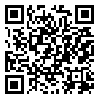BibTeX | RIS | EndNote | Medlars | ProCite | Reference Manager | RefWorks
Send citation to:
URL: http://irancounseling.ir/journal/article-1-51-en.html
The purpose of present research was study on relationship between child-parent conflict and student’s academic self- concept with their life satisfaction. Method of research was correlation studies. The study population was all of male and female students in junior high school in Namin. The sample were 293 students of third graders that selected by using multistage cluster sampling method. Research instrument were Satisfaction With Life Scale (SWLS),Yi- Hsin Chen School self-concept inventory and Conflict Tactics Scales (CP). The data were analyzed with Pearson correlation and multiple regression methods. The results showed there was positive relationship between academic self- concept with student’s life satisfaction and there was negative relationship between child-mother conflict with student’s life satisfaction. The result of multiple regression showed that academic self- concept and mother’s verbal aggression are able for prediction the student’s life satisfaction. Other predictor variables are not able for prediction the student’s life satisfaction. Based on the results of the current study, it is concluded that Attempts to form positive academic self-concept and reduce conflicts between parent-child among adolescents have important contributions to their life satisfaction.
Received: 2015/11/1 | Accepted: 2015/12/22 | Published: 2016/05/2
| Rights and permissions | |
 |
This work is licensed under a Creative Commons Attribution-NonCommercial 4.0 International License. |


